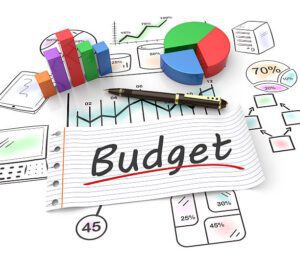1. Introduction
Creating a personal budget is an essential step toward achieving financial stability and reaching your financial goals. A budget helps you manage your income, control your spending, and make informed financial decisions. In this guide, we’ll explore the process of creating a personal budget to take control of your finances.
2. Why Create a Personal Budget?
Creating a personal budget offers several benefits:
- Provides clarity and awareness of your financial situation.
- Helps you prioritize and align your spending with your values and goals.
- Enables you to track and control your expenses.
- Helps you save money, reduce debt, and build wealth.
- Provides a sense of financial security and peace of mind.

3. Assess Your Financial Situation
Start by assessing your current financial situation. Calculate your net worth, including your assets and liabilities. Review your income, expenses, and any existing debts. Understanding your financial position is crucial for effective budgeting.
4. Determine Your Income
Identify and track all sources of income. This includes your salary, wages, freelance income, rental income, or any other money you receive regularly. Ensure you consider after-tax income to accurately reflect the amount available for budgeting.
5. Track Your Expenses
Track your expenses for a defined period, such as a month, to get an accurate picture of your spending habits. Record all your expenses, including fixed expenses (rent, utilities) and variable expenses (groceries, entertainment). Use budgeting apps or spreadsheets to simplify the process.
6. Categorize Your Expenses
Categorize your expenses into meaningful categories, such as housing, transportation, groceries, entertainment, debt payments, and savings. This allows you to identify areas where you can potentially reduce spending and make adjustments.
7. Set Financial Goals
Establish short-term and long-term financial goals. Your goals may include paying off debt, saving for a down payment, creating an emergency fund, or planning for retirement. Clear goals provide motivation and guide your budgeting decisions.
8. Allocate Your Income
Allocate your income to cover your essential expenses, such as housing, utilities, transportation, and groceries. Set aside a portion for savings and investments, and allocate funds for debt repayment. Consider creating a separate category for discretionary spending.
9. Prioritize Your Spending
Prioritize your spending based on your financial goals and values. Differentiate between needs and wants to ensure essential expenses are covered first. Make conscious decisions about discretionary spending, focusing on items and experiences that align with your priorities.
10. Reduce and Eliminate Debt
Develop a plan to reduce and eliminate debt. Allocate extra funds toward high-interest debt while making minimum payments on other debts. Consider strategies such as the debt snowball or debt avalanche method to accelerate debt repayment.
11. Save and Invest
Make saving and investing a priority in your budget. Allocate a portion of your income to build an emergency fund for unexpected expenses. Plan for future goals, such as homeownership, education, or retirement, by contributing to appropriate savings or investment accounts.
12. Monitor and Adjust Your Budget
Regularly monitor your budget and track your progress. Review your budget monthly to ensure you’re staying on track and making progress toward your financial goals. Adjust your budget as needed to accommodate changes in income, expenses, or financial objectives.
13. Conclusion
Creating a personal budget is a fundamental step in taking control of your finances. It empowers you to make informed financial decisions, reduce debt, save for the future, and achieve your financial goals. By understanding your financial situation and aligning your spending with your priorities, you can pave the way for financial success and peace of mind.
14. FAQs
Q: How much should I allocate for savings?
A: The amount you allocate for savings depends on your financial goals and circumstances. As a general rule, aim to save at least 10-20% of your income. However, adjust this percentage based on your priorities, such as emergency funds, short-term goals, or long-term investments.
Q: Should I use cash or digital tools for tracking expenses?
A: It depends on personal preference. Both cash and digital tools have their advantages. Digital tools offer convenience and real-time tracking, while using cash can provide a tangible sense of spending. Choose the method that suits your lifestyle and helps you maintain accurate records.
Q: Can I make changes to my budget during the month?
A: Yes, a budget should be flexible and adaptable. If unexpected expenses or changes in income occur, adjust your budget accordingly. Regularly reviewing and modifying your budget ensures it remains relevant and effective.
By creating a personal budget, you can gain control over your finances, make intentional financial decisions, and work towards your financial aspirations. Start today and pave the way to a secure and prosperous financial future.





